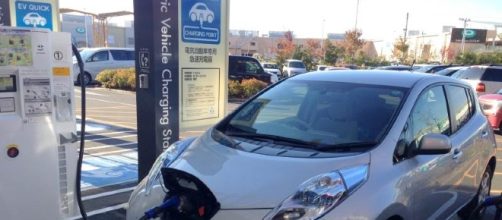Fossil Fuel is on its way out, and one country is currently at the forefront of a future without the commodity. The country in question is china.
China aims to ban fossil fuel cars completely in favor of Electric Vehicles. The government has yet to give a time frame, and as such, it could take decades before this plan is fulfilled. At the moment, regulators in the country are working on a timeline to put the ban in place and to end all sales of gas-using cars.
This move by the Chinese will likely impact the world since the country is the largest automobile market in the world.
In 2016 alone, over 28 million vehicles were sold there, and that number is expected to rise in 2017 and beyond.
Cutting carbon emission is very important
A report from Bloomberg states that China has long been encouraging growth in the electric vehicles sector via subsidies in a bid to reduce its high carbon emissions.
This should be viewed as a spectacular move by the Chinese to cut carbon emissions, but it’s easier said than done.
Car makers are leading the charge
Outside of China, several automobile manufacturers have announced plans to end production on fuel-related cars in ten or more years. Some have even decided to create hybrids instead of solely focusing on electric vehicles for the future.
Rover and Jaguar aim to produce only electric vehicles by the year 2020, while Volvo made an announcement claiming it wants to create only electric or electric hybrid vehicles by 2019. As for Aston Martin, this car manufacturer wants to produce only hybrids by 2025, which is quite further off than its competitors.
A widespread adoption of EVs will not end global warming altogether, but it would certainly help in slowing down its progress.
What does this mean for Tesla?
Tesla is the best known electric car company in the world today, and the only car manufacturer that’s not producing fossil fuel vehicles. China and other nations choosing to use EVs exclusively could boost its business significantly in the future.
Any boost to Tesla’s core business would likely happen outside of China because the American company is having a difficult time making a name for itself there.
As China moves to control the growth of Western companies on its shores, the world can expect a homegrown competitor to rise in a few years.
Such a competitor would give Tesla a harder time in the Chinese market, making it even more difficult for Elon Musk to secure a foothold, if even a small one


